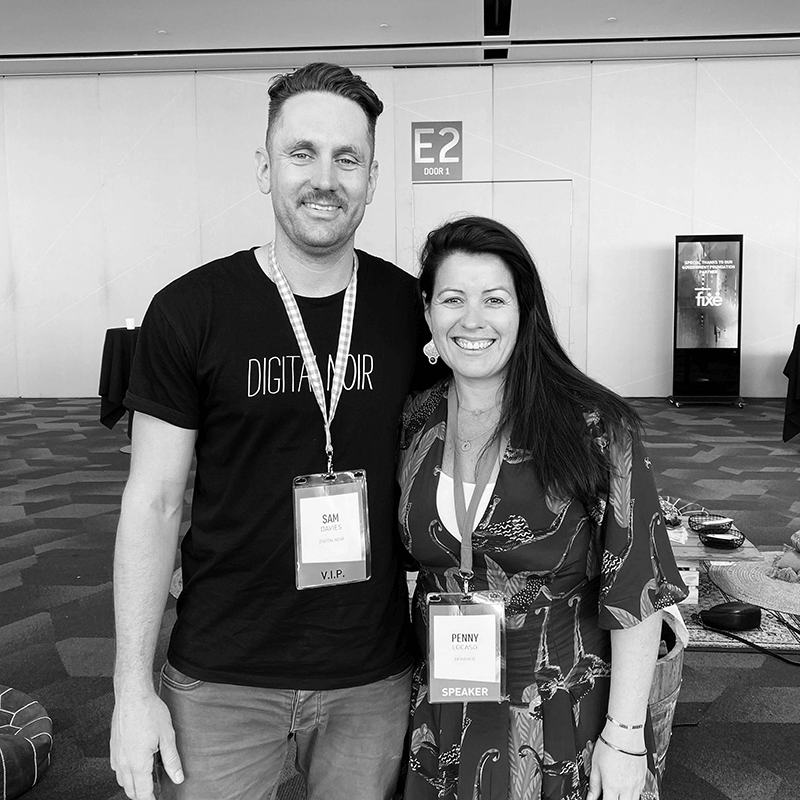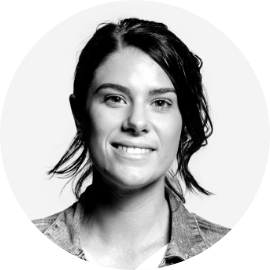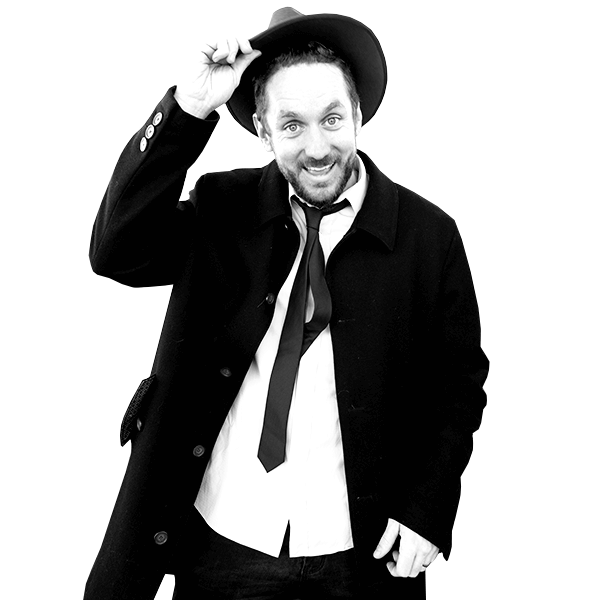In this podcast:
Happiness • Culture • Mindfulness • _southstart
It was exciting sitting down with Penny Locaso again, if you’ve been listening to our podcasts for a while, you’ll remember we talked to her at _southstart last year. Penny founded Bkindred and calls herself a “happiness hacker”. She has just launched her book Hacking Happiness. Penny teaches people how to slow down, think more, and make decisions to adapt, coining the term Intentional Adaptability Quotient (IAQ) – a means of measuring how skilled someone is at making an intentional change in a complex environment that’s evolving at speed. We dove into the theme of Penny’s talk at _southstart, discussing the busy epidemic. How as a society, people are forced to cram as much stuff into their day as possible leading to bad mental health, especially anxiety. Penny spills some of her hacks for productivity and managing her work into a small portion of her day.
This is an inspiring conversation that challenges people to think differently, enjoy!

Transcript of Sam Davies in conversation with Penny Locaso
(00:01) Welcome to another episode of Digital Noir presents Humans Aren’t Robots. I’m your host, Sam Davies, and we’ve got another great episode with Penny Locaso. Penny calls herself a happiness hacker and she runs a company called Bkindred. And what she does is she teaches people how to slow down and think more and make decisions to adapt.
(00:54) She’s coined the term ‘’intentional adaptability quotient’’, which we talked about during this chat IAQ, which is basically a means of measuring how skilled someone is at making an intentional change in a complex environment that’s evolving quickly, which is the world we find ourselves in.
(03;09) How do we humanize the workplace? How do we come into the office every single day and not feel robotic? Almost every single conversation I’ve had with people keeps coming back to that fact, that human element, about whether it was marketing or entrepreneurship or business, that was sort of the pivot.
(05:41) So what are you talking about here?
(05:43) The talk was called The Busy Shall Inherit The Future, But The Intentionally Adaptable Will ShapeIit.
(05:56) I speak about the busy epidemic and how busy is a barrier to us actually living lives that enable us to thrive in a world of technology. You spoke about humanizing the future of work. If we just created space for people to get rid of this focus on productivity and efficiency, because what are we being more productive and efficient for?
(06:41) We are trying to drive productivity and efficiency through the technology that we create so we can actually just do more. It’s just this endless cycle of doing and it’s directly linked to the mental health issues we are currently seeing globally, and they are not getting better, it’s actually getting worse.
(07:02) It’s kind of global like neuroticism, isn’t it?
(07:35) Busy perpetuates busy. A friend recently told me, who’s a psychologist, she said a busy mind will go to anxiety, it’s only a matter of time. As the mother of a nine year old, I cannot tell you how many parents, I speak all around the world, the amount of parents that come up to me and talk about their child’s anxiety or how their child’s not coping. Then the other thing that blows me away is every time I do this talk, I ask people to raise their hand if they’ve never experienced anxiety or had someone close to them experience it. I’ve never had anyone in the room put their hand up. I would have spoken in front of probably 15000 people this year and not one person has ever put their hand up because everyone is touched by this. This is why it’s an epidemic.
(08:28) It is frightening because where does it end? The rates of suicide in the next generation are beyond anything we’ve ever seen. These are the leaders of tomorrow. And we have got a whole generation that is hugely anxious and overwhelmed and they’re fully supported. So their current environment means that their parents pay the bills year they’re in school, so they’re fully supported in all aspects of life. So what happens when you remove all that support and they have to become independent adults and they’ve got massive issues with anxiety? I don’t even think we’ve seen the tip of the iceberg yet.
(09:03) Talk to me about intentional adaptability. What does that mean to you?
(09:06) Every time I spoke, people would say to me, how do I keep up with the pace and scale of change? How do I make sure I remain relevant? What are the skills I need to be able to effectively navigate this future that we’re in with so much is changing all the time? And I was like, who are you keeping up with, for what?
(09:42) I came across a really interesting article out of Harvard and it spoke about an AQ adaptability quotient, a quotient is just another word for measure. And it said your AQ in the context of a skill for the future would be more important than your EQ or your IQ, because if you couldn’t adapt, you’d be left behind. And it also said that it was the new competitive edge. We’re all buying that if Harvard says it, you know? It makes a lot of sense to me in the context of the work that I’m doing. But if I overlay that with the conversations I have after I talk, what I realize is that adaptability when it is extrinsically motivated or motivated by someone else’s ill intentions i.e. tech companies wanting to create technology for addiction, the onflow effects of that are significant and often relate to mental unrest. What if we could take this concept and we could actually bring intention to the forefront of how we helped people adapt so that it was conscious and they put meaning at the forefront of the decisions that they made.
(10:50) So rather than speed things up, I actually want to slow people down and help them create the space to think more, to have more conversations and actually get very clear on what matters in life. Because unless you can get clear on those two or three things that really matter to you, I think it’s going to be very hard to get off this hamster wheel that people are stuck on. And so that was where this concept of IQ, intentional adaptability quotient was born. I basically took a global term, modified it and renamed it. Intentional adaptability quotient is the measure of how skilled you are at making intentional change in a complex environment that’s evolving at speed.
(11:41) Give me an example of an intentional change?
(12:08) One thing that I’ve done is removed all social media off my phone. Anything that’s going to suck my time – gone. The other thing that I came across recently that has blown my mind is a tool called Focusmate. I’m huge on creating the space for deep thinking and actually doing work that really lights me up, but just doing a single task at a time.
(13:43) The other thing that I love and I’m big on as a tech that amplifies human potential and creates the space for us to be more human or think more, is an app called Freedom. Freedom actually locks down all of the distractions that you can access on your computer and your phone for a period of time that you determine.
(17:10) But you’re talking about obstacles or obstacles being things in your path that actually end up being the way. A lot of what we teach and intentional adaptability is how to be courageous and how to use fear and failure actually is a real positive to shape the change that you want.
(20:43)But still in Australia, there’s a big sort of stigma around failure.
(20:46) Oh, there is. There’s still a long way to go in that space, without a doubt.
(21:07) We’re not that honest and we have a couple of issues that come to my mind is that, this fear of failure in Australia comes back to tall poppy syndrome. We love a success story and then we love to pull them apart. And equally, I think the other thing that I really struggle with and get probably quite embarrassed about is the fact that we’re still, I would argue, an extremely racist country. And I think that that in itself is a huge barrier to us realising the potential of diversity and diversity of thought and diversity of innovation and ideas.
(21:48) Racist and misogynist, but also just to be closed minded I think is fear based.
(21:54) Racism is ignorance, it’s a lack of understanding and seeking to want to understand.
(22:01) Iif the easiest way to gain acceptance is by joining a crowd that’s touting one side of the argument, then that’s easier. We need those conversations that are difficult, that’s kind of what we need.
(22:26) There’s so many benefits to a difficult conversation. I just spoke about intentional adaptability, the people who are highly skilled in IAQ are the ones who surround themselves with unlike minds, people who challenge them to look at the world through a different lens rather than like minds. I think travel is a great kickstarter for that.
(24:50) Hate is one word I could remove from the vocabulary. I had an enlightening experience last year where I took my then eight year old son trekking through the Himalayas. It was for me, that’s where his education lies. It’s not in school because school’s not actually giving him the skills that he needs for the future, even though they’re lovely.
(26:40) But probably the most insightful thing that came from that trip for me was we have this beautiful guide, his name was Joy, funnily enough.We were talking about what I do and I spoke to him about how in the Western world this busy thing is such a big deal and it’s creating so much angst. And he just said to me, that word doesn’t translate. We don’t have a word for busy in Nepal. The Nepalese aren’t busy and there’s plenty they could be doing, but like Joy was joyful, he was so at peace with his slowed down life, his perhaps inefficient life and so it seemed many of the people as we went up these mountains.
(28:14) In that podcast you were talking about radical wholeness. How do you go about, as a leader, fostering that in the workplace?
(29:24) The word that immediately comes into my mind is authenticity. Why are people feeling that they can’t be authentic at work? What does authenticity mean? And when I unpack authenticity, authenticity is basically telling people to be who they are. And I think that’s kind of weird. Why are we having to tell people to be who they are and that it’s OK to be who they are? What we should be looking at is why they are afraid of being who they are. What is holding them back? If I was in a leadership position, that is the space I would be playing in. I read something and it said, rather than focusing on what we want, why don’t we focus on what people are avoiding? And actually document what authenticity means to you as a team. I think, again, it’s like values. You see them on the walls of these companies, but there’s never anything that actually articulates what it means in terms of how we show up in the workplace.
(31:30)How are we applying this to the people we do work for? And what does it actually mean to me because if it doesn’t mean anything to you, then it’s just fluff, it doesn’t matter, who cares.
(31:44) Two companies that do this extremely well are Atlassian and the other is Netflix. They have values and then they explicitly articulate what it means in terms of how you show up everyday, because if you can’t do that, you can’t hold people accountable to what you want the culture to be. The actions and behaviors constantly reinforce those things.
(33:44) So there’s a lot of talk about millennials and how they’re much more purpose focused or much more interested in how they can make an impact. But sometimes I feel like you’re trying to force that upon people that aren’t that interested in.
(34:19) If there’s one thing I’ve learned in over twenty years working in change and adaptability, it’s that there’s always three types of people. And understanding those types, helps you work out where your energy is best directed to create the impact that you want to in the world. So you always get your early adopters, people that will get on board early and 150 percent behind it, for instance. Then the people that could sway either way in terms of an idea. And then you’ve got what I call you, terrorists. The biggest opportunity you have is getting the fence sitters over the line and helping them in terms of awareness and equally leveraging the people who are the early adopters as your ambassadors.
(35:20) Do you need the terrorists, though?
(35:22) You do need the terrorists because otherwise the world would be boring if we were all the same. But also like it’s like we’re saying before, they’re the unlike minds.
(35:38) I also worry about if you’re running a purpose based organization, a very strongly value based organization, that you fall into people having a fairly homogeneous group of people potentially?
(35:58) It’s an unconscious bias that we just have. We employ people like us. But how does that cultural fit actually mean? Does that mean this person’s not going to disrupt the status quo? Does that mean do you want people that fit in? Because what I see is that often the ones that don’t fit in are the ones that create the new ideas and the disruption.
(36:47) And allowing them the space to be able to do that? You have a very ambitious goal?
(37:01) My goal is to teach 10 million humans by 2025 how to intentionally adapt in order to future proof happiness.
(37:15) You’ve just adapted a plant based diet and stopped drinking. And so that’s intentional adaptation?
(37:46) Without a doubt. But the idea that I’d overlay with that and when we talk about intentional adaptability, we don’t prescribe what’s right for anyone. We encourage people to experiment because I think there’s an absolute lack of it in our society today. And again, that’s fear based. So experiment with this stuff, play with it. And if it works great and if it doesn’t find a new experiment.
(38:30) If we don’t try new things, how do we learn? And I always say, growth doesn’t occur in comfort, it occurs in pain and discomfort. So if you are sitting there in comfort 99 percent of the time, I guarantee you, you are not realizing your potential, there’s a whole host of it untapped.


